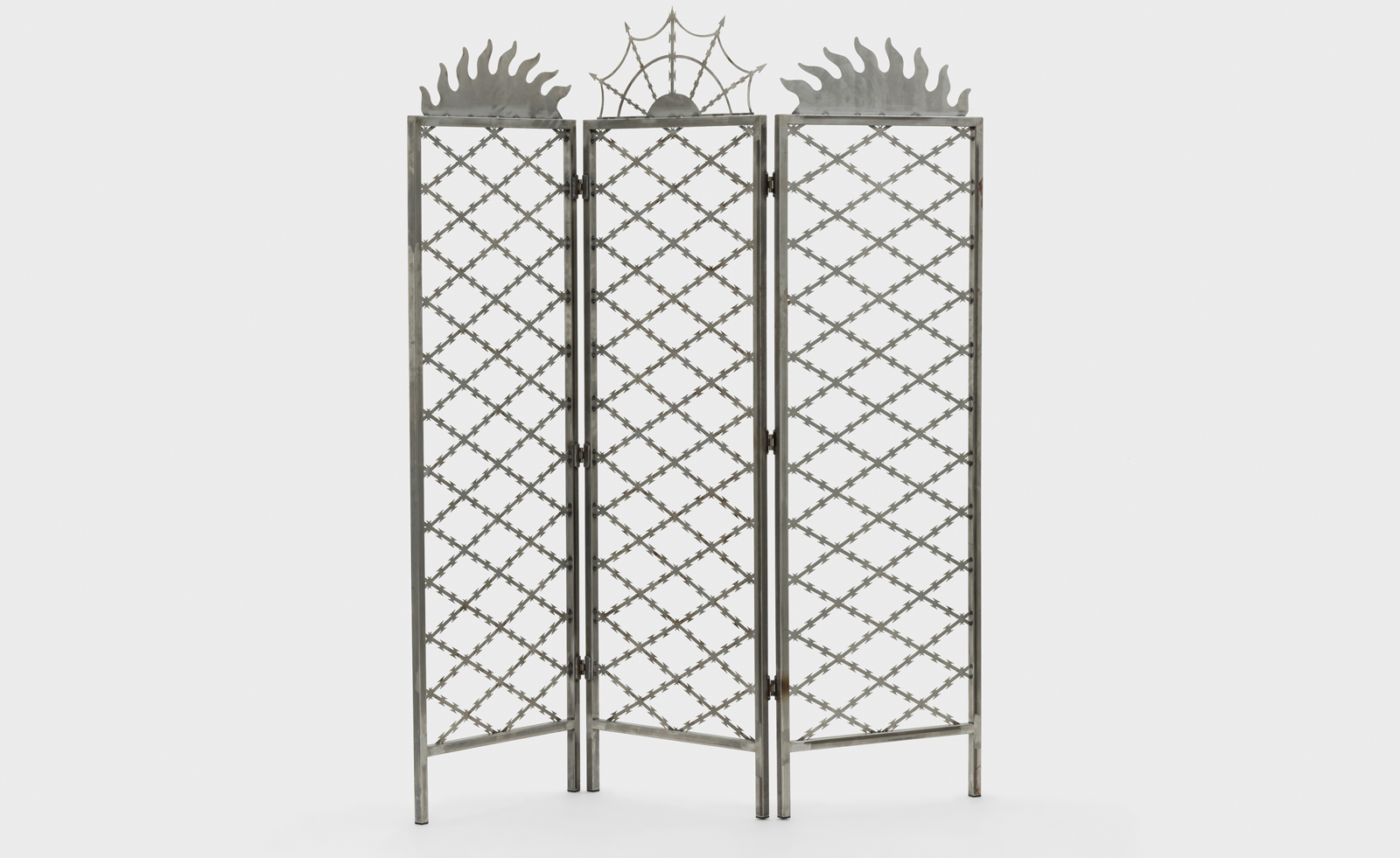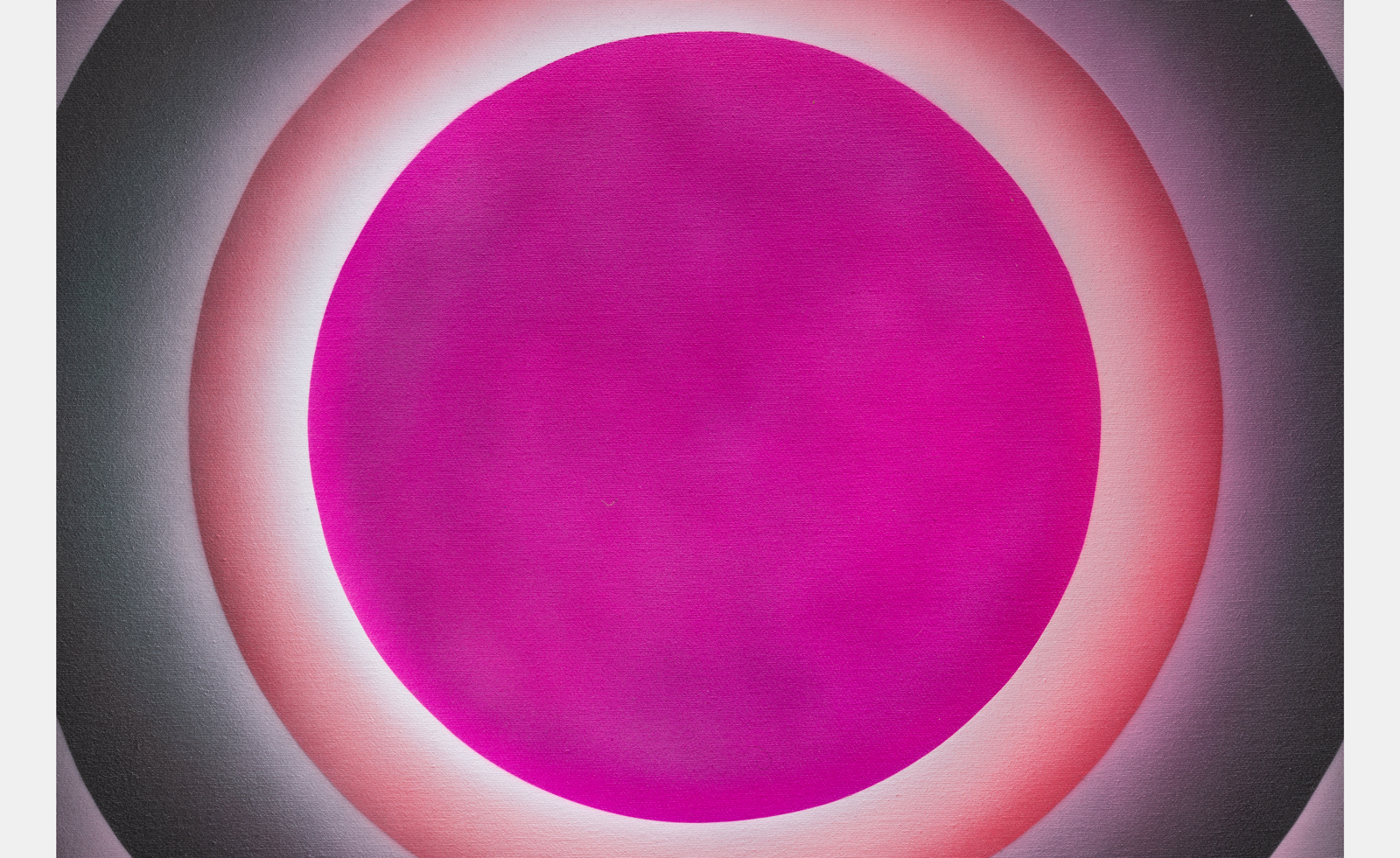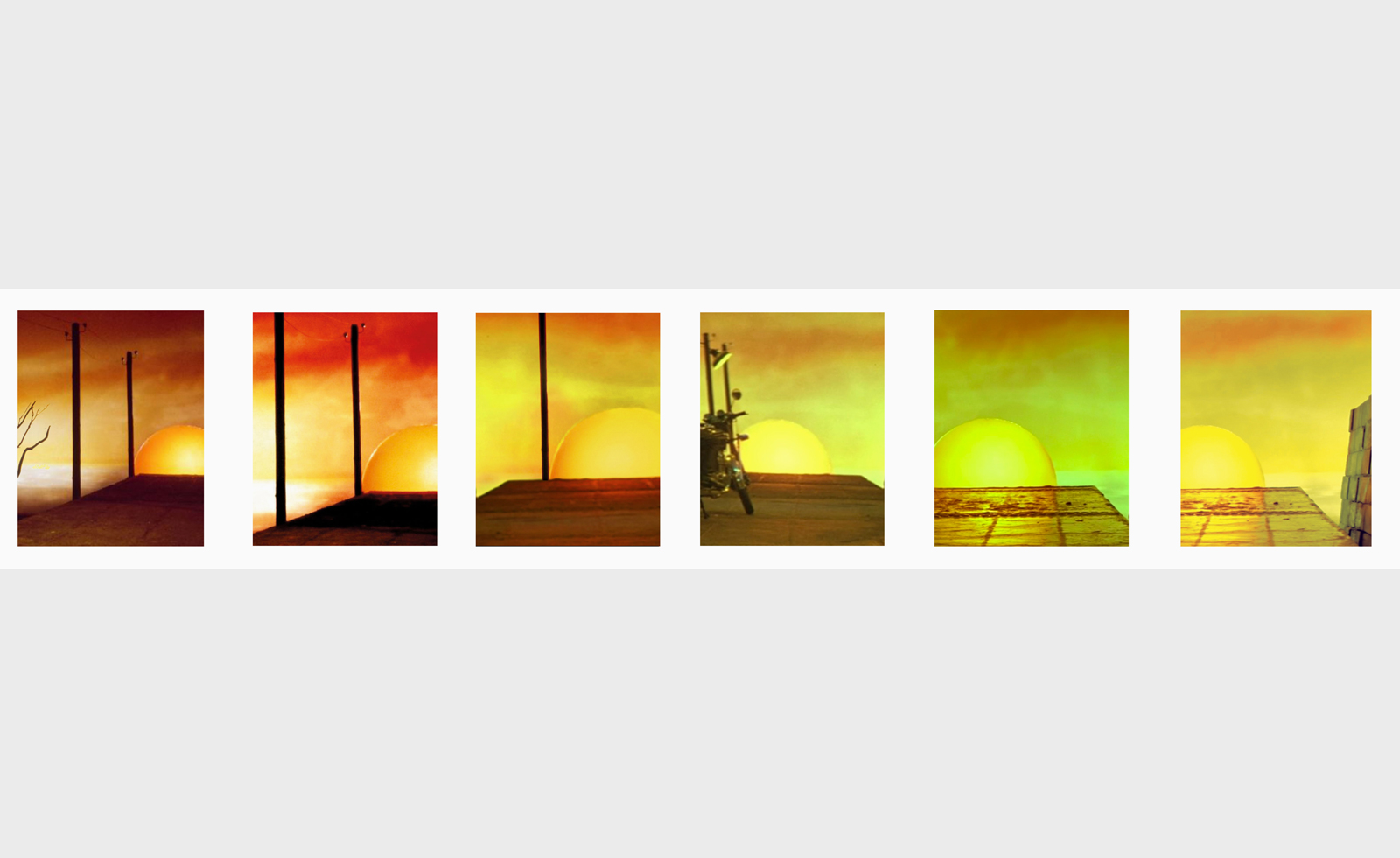
Basketball, the Cold War, Looney Tunes, and the films of Rainer Werner Fassbender: these are just some of the references that Gray Wielebinski playfully incorporates into his first institutional solo show. ‘The Red Sun is High, the Blue Low’ – a title lifted from the pages of an essay written by beloved sci-fi author Samuel R Delaney – is a curious amalgam of interactive art and objects which, through careful curation in London’s Institute of the Contemporary Arts (ICA), boldly speaks to the political and environmental precarity of our present.
Situated between Buckingham Palace and Whitehall, the show directly responds to the protection granted to institutional powers that may well bring about the end of the world as we know it. Wielebinski’s bunker, likewise, offers a space for visitors to engage in doomsday prepping by way of Silicon Valley billionaires and apocalypse fantasists. ‘In its privacy, surveillance, and exclusivity, the bunker also speaks the language of illicit spaces – another kind of world within a world,’ Wielebinski says, ‘where separating oneself leads towards community formation rather than isolation.’
Gray Wielebinski at the ICA, London
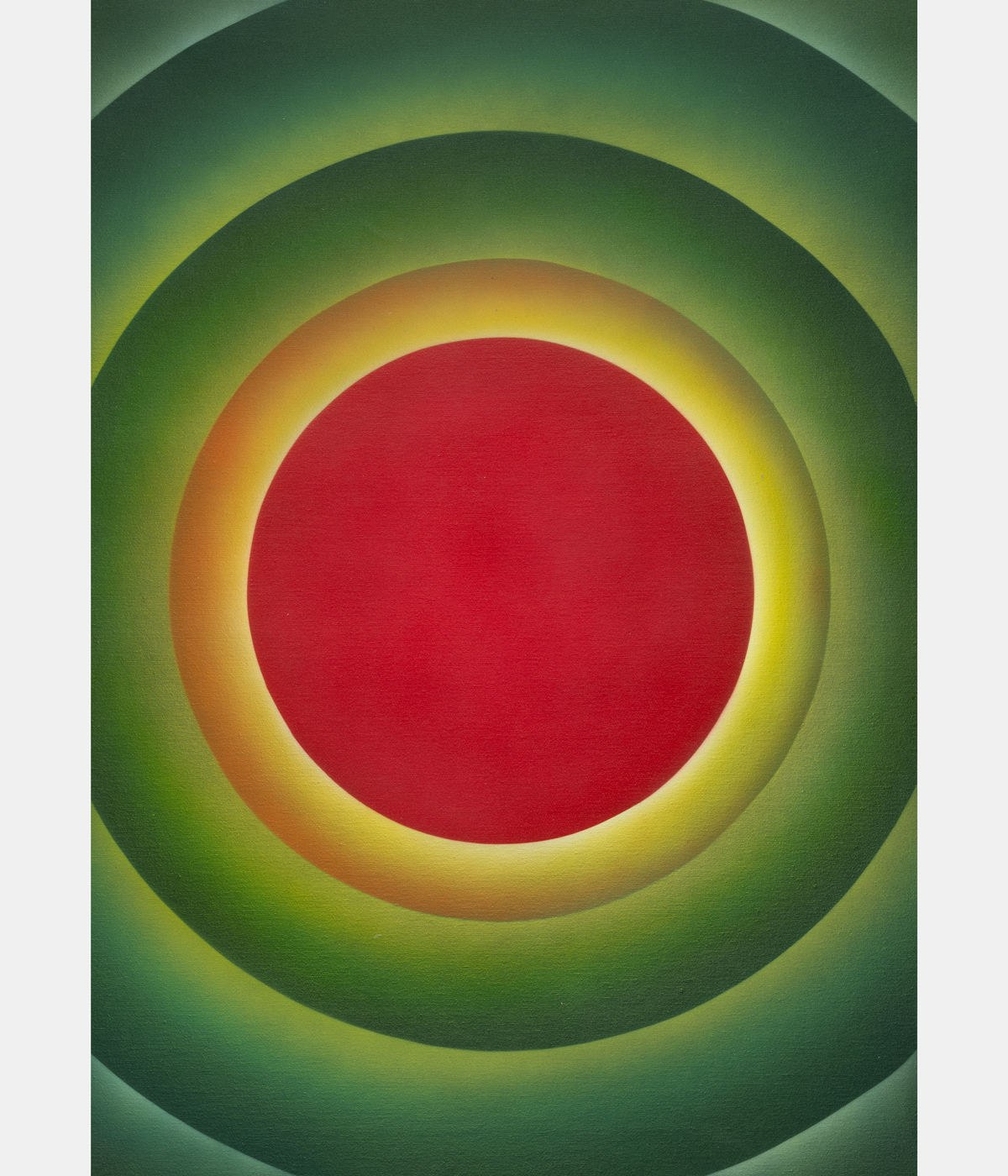
The exhibition delves into Gray's recurring themes, notably the exploration and subversion of phallocentric power structures. In upcoming exhibitions at Gió Marconi in Milan and Anat Ebgi in LA, Gray plans to showcase a series of disciplinary paddles that examine parental discipline and the transformative power of desire. And it’s along these lines that the artist carefully interrogates the power of collective hope in dark times.
A sound installation playing a constant low hum of cicadas buzzing is eerily reminiscent of a siren, but for the artist, the noise conjures up his childhood in Dallas. On the wall facing the entrance, a retro scoreboard continuously counts down. What it is tracking remains unclear, as are the rules of the game. In the spirit of critic and philisopher Frederic Jameson, who tells us ‘it’s easier to imagine the end of the world than the end of capitalism’, Wielebinski asks us to imagine both.
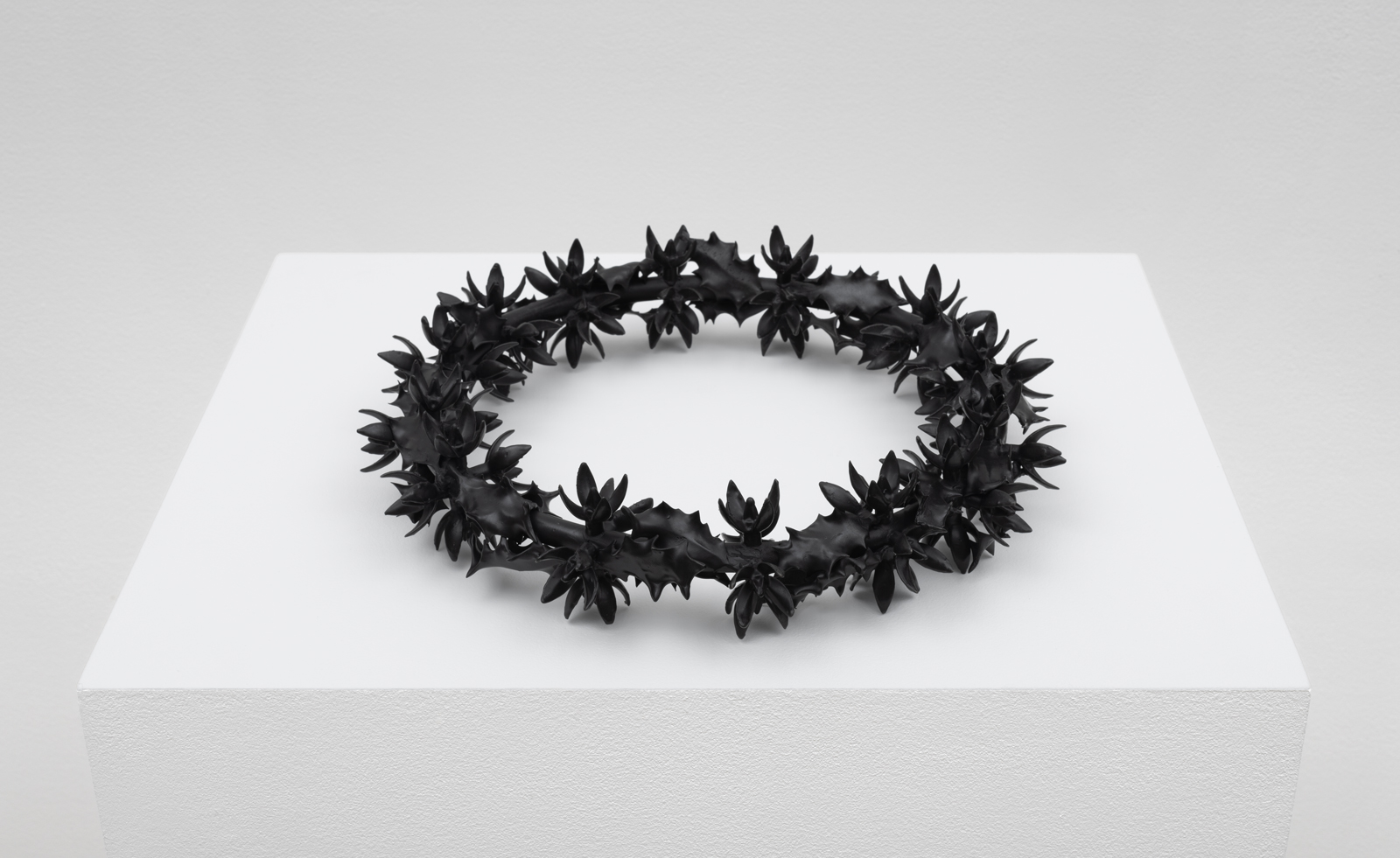
Queerness has long been central to the creation of embodied forms of sci-fi, and ‘The Red Sun is High, the Blue Low’ is certainly no exception. Entering the cavernous space, a frieze of four lurid suns is plastered onto the wall in vinyl. Whether these are the suns of halcyon summer days or from the aftermath of an imagined nuclear apocalypse is uncertain, each image requiring spectators to reach their own conclusion. These stills, Wielebinski says, reference Fassbender’s final film Querelle (1982) along with its tagline: ‘a surreal world of passion and sexuality’.
Much like the wave of recent family abolitionist sci-fi literature and media, Wielebinski’s imagined dystopia calls forth a curiously queer model of intimacy in a time crisis. The conversation pit in the centre of the space shaped like a radioactive warning symbol, evokes the sacredness of our chosen communities. In the end times, our hegemonic social order may well cease to exist, allowing for a new one to take place. Here Wielebinski creates a profound experiment in imagining otherwise, inviting his audience to do the same.
‘The Red Sun is High, the Blue Low’ will run 20 September until 23 December 2023 at the ICA, London
